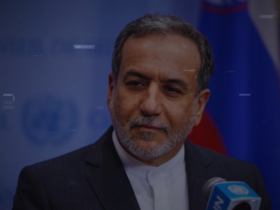When we examine US-Israel relations, few alliances have been as enduring or financially significant. The United States has provided Israel with nearly $318 billion in aid since World War II, making Israel the largest cumulative recipient of U.S. foreign assistance. Since 2019, this support has solidified into a commitment of $3.8 billion annually in military aid alone.
Throughout their presidencies, both Trump and Biden maintained this substantial financial support; however, their diplomatic approaches differed significantly. From Trump’s embassy relocation to Jerusalem to Biden’s handling of the Gaza conflict, these differences have shaped US and Israel relations in profound ways. Despite changes in administration, the pattern in US-Israel relations based on political party reveals both consistencies and notable shifts. As we look toward US-Israel relations in 2025, understanding these presidential impacts becomes increasingly relevant.
In this analysis, we’ll compare how each president influenced this critical alliance, examining their policies on diplomacy, military cooperation, peace initiatives, and regional security. By examining the evidence, we’ll determine which president ultimately had a more consequential impact on one of America’s most important international partnerships.
Recognition and Diplomacy: Jerusalem, Golan, and Beyond
“Israel is a critical friend and ally to the United States. I stand with Israel, both because of our shared values, which are so fundamental to the founding of both our nations, and I believe the bonds between the people of the United States and the people of Israel are unbreakable, and we can never let anyone drive a wedge between us.” — Kamala Harris, Vice President of the United States
The diplomatic landscape between America and Israel underwent monumental shifts during the Trump and Biden administrations, particularly regarding territorial recognition and embassy placement.
Trump’s Embassy Move to Jerusalem and Golan Recognition
President Trump dramatically altered decades of American foreign policy through two unprecedented decisions. First, in December 2017, he recognized Jerusalem as Israel’s capital and moved the U.S. Embassy from Tel Aviv to Jerusalem in May 2018. This fulfilled a campaign promise that previous presidents had avoided implementing despite the 1995 Jerusalem Embassy Act that urged this very action. Trump framed this decision as “nothing more, or less, than a recognition of reality”.
Even more consequentially, in March 2019, Trump formally recognized Israeli sovereignty over the Golan Heights, making the United States the only country to do so. The move upended a half-century of U.S. policy regarding territories captured in the 1967 Six-Day War. Prime Minister Netanyahu called this recognition “a two-fold act of historic justice”.
Biden’s Approach to Diplomatic Continuity and Recalibration
Rather than reversing his predecessor’s controversial moves, President Biden maintained the embassy in Jerusalem and continued recognizing Israeli sovereignty over the Golan Heights. Notably, Biden has not fulfilled his campaign promise to reopen the U.S. Consulate in East Jerusalem, which historically served Palestinians and was closed under Trump.
Alternatively, Biden has attempted to rebuild relations with the Palestinian leadership after Trump’s near-complete disengagement. In 2023, the administration announced an upgrade of the Palestinian affairs unit within the U.S. embassy, though experts viewed this as largely cosmetic rather than substantive.
Impact on US-Israel Relations in the Arab World
Trump’s diplomatic approach culminated in the Abraham Accords, wherein the UAE and Bahrain established diplomatic ties with Israel for the first time. Additionally, Morocco and Sudan later announced similar normalization agreements. While celebrated as achievements, these moves faced criticism for sidelining Palestinian concerns and traditional Arab conditions for normalization.
Building on these foundations, Biden has sought to expand the coalition of Arab states recognizing Israel. Both administrations pursued Saudi Arabia as the “biggest prize” for normalization, with complex negotiations involving nuclear power programs and security agreements.
Overall, these diplomatic maneuvers significantly altered the regional landscape. While Trump’s unilateral approach gained applause from some pro-Israel advocates, it diminished America’s perceived role as a neutral broker. Biden’s continuation of these policies with subtle recalibrations reflects the enduring complexity of managing U.S.-Israel relations in a changing Middle East.
Military Aid and Strategic Cooperation
Military cooperation forms the bedrock of US-Israel relations, with financial commitments reaching historic levels under both administrations.
Trump’s $3.8 Billion MOU and Arms Transfers
The Trump administration implemented a historic Memorandum of Understanding (MOU) negotiated during the Obama presidency. This unprecedented $38 billion agreement, covering fiscal years 2019-2028, represents the largest military aid package in US history. The MOU provides:
- $3.3 billion annually in Foreign Military Financing
- $500 million yearly for missile defense programs
- Funding for F-35 Joint Strike Fighters and other advanced systems
Furthermore, Trump’s administration actively expedited arms transfers to Israel. In early 2024, the administration bypassed traditional congressional review to approve nearly $12 billion in weapons sales. This included 35,500 MK 84 and BLU-117 bombs worth $2.04 billion and Caterpillar D9 Bulldozers valued at $295 million.
Biden’s Continued Support and Conditional Oversight
President Biden maintained the MOU framework while adding temporary conditions. His administration notified Congress of planned $8 billion weapons sales in January 2024, contributing to at least $17.9 billion in military aid provided since October 2023.
In contrast to Trump, Biden briefly implemented National Security Memorandum 20 (NSM-20) in February 2024, requiring foreign recipients of US weapons to certify compliance with international law. Nevertheless, Biden temporarily paused shipments of 2,000-pound bombs in May over civilian casualty concerns before resuming deliveries.
Joint Military Exercises and Intelligence Sharing
The intelligence relationship between the two nations has evolved considerably. Under Trump, US and Israeli intelligence services “operated in virtual lock step”, with cooperation continuing under Biden’s administration, albeit with some recalibration.
In early 2023, the countries conducted “Juniper Oak,” their largest-ever joint military exercise. This comprehensive operation involved 4,600 US troops, an aircraft carrier task force, and 140 aircraft practicing coordinated air, land, sea, space, and cyber operations. Though officially unspecified, analysts widely interpreted this exercise as preparation for potential operations against Iran’s nuclear facilities.
Intelligence sharing intensified after October 2023, with the US deploying surveillance drones over Gaza and providing consultation on hostage recovery efforts.
Peace Process and Palestinian Policy
“This deal will halt the fighting in Gaza, surge much needed-humanitarian assistance to Palestinian civilians, and reunite the hostages with their families after more than 15 months in captivity.” — Joe Biden, President of the United States
Approaches to Palestinian relations mark one of the starkest contrasts between the Trump and Biden administrations, with each president pursuing fundamentally different strategies regarding peace processes and Palestinian engagement.
Trump’s Abraham Accords and Aid Cuts to Palestinians
The Trump administration dramatically reshaped US-Palestinian relations through unprecedented funding cuts and diplomatic isolation. In 2018, Trump eliminated $200 million in aid to Palestinians and shut off funding for UNRWA, the UN agency supporting Palestinian refugees. Simultaneously, his administration closed the Palestinian mission in Washington and generally refused meetings with Palestinian leadership.
Trump’s signature achievement, the Abraham Accords, formalized diplomatic relations between Israel and several Arab states (UAE, Bahrain, Morocco, and Sudan). Yet these agreements deliberately bypassed Palestinians, realizing “the longstanding Israeli goal of severing diplomatic progress with Arab states from progress towards a sovereign Palestine”. The Trump team also drafted a peace plan with zero Palestinian input that critics claim would have effectively eliminated the possibility of a viable Palestinian state.
Biden’s Re-engagement with the Palestinian Authority
Upon taking office, Biden swiftly restored Palestinian relations and aid. His administration announced the renewal of diplomatic engagement with the Palestinian leadership and restored $235 million in assistance. Biden officials explicitly stated, “We do not view these steps as a favor to the Palestinian leadership, but as benefits to ‘millions of ordinary Palestinians'”.
The Biden team also returned to traditional US policy positions, declaring Israeli West Bank settlements “problematic and unhelpful” and imposing sanctions on Israeli settlers responsible for attacks against Palestinians.
Comparing Approaches to the Two-State Solution
Fundamentally, the administrations diverged on Palestinian statehood. Biden explicitly supports a two-state solution, stating in his State of the Union address that “the only real solution to the situation is a two-state solution”. Conversely, Trump was largely dismissive of Palestinian statehood aspirations, with his son-in-law Jared Kushner later arguing that “giving them a Palestinian state is basically a reinforcement of ‘We’re going to reward you for bad actions'”.
Iran and Regional Security Strategy
Iran policy represents a critical inflection point in US-Israel relations, with each administration taking markedly different approaches to Tehran’s nuclear ambitions and regional influence.
Trump’s Withdrawal from the Iran Deal and Maximum Pressure
President Trump fundamentally altered America’s Iran strategy on May 8, 2018, by withdrawing from the Joint Comprehensive Plan of Action (JCPOA). This decision fulfilled his campaign promise to abandon what he called “the worst deal ever”. Subsequently, Trump implemented his “maximum pressure” campaign, imposing over 1,500 sanctions targeting Iran’s political, military, and economic spheres.
The strategy’s economic impact was swift and severe. Iranian oil exports plummeted from 2.1 million barrels per day to below 400,000, causing the Iranian rial to drop in value by 600% within two years. Furthermore, Trump designated the Islamic Revolutionary Guard Corps as a foreign terrorist organization in April 2019—the first time the U.S. had labeled a foreign government entity as such.
Biden’s Attempted JCPOA Revival and Israel’s Response
In contrast, the Biden administration pursued what insiders called a “low boil” strategy, seeking to revive the nuclear agreement while addressing Israel’s concerns. Biden’s team initiated negotiations in April 2021, demanding increased concessions, including limits on Iran’s missile program.
Israel vehemently opposed rejoining the original deal, with IDF Chief Aviv Kochavi publicly warning against it. Israeli officials identified critical flaws, including insufficient inspection protocols and the agreement’s “sunset clauses”. They feared lifting sanctions would provide “financial oxygen” to Tehran while depriving America of leverage.
Hezbollah, Syria, and Strategic Alignment with Israel
Despite different approaches, both administrations maintained strategic alignment with Israel regarding Iran’s proxies. Trump’s strategy culminated in the January 2020 assassination of Quds Force commander Qassem Soleimani, while Biden authorized strikes against 85 IRGC-backed targets following American casualties in Jordan.
According to reports, senior Biden officials privately supported Israel’s military pressure against Hezbollah in 2024, acknowledging the group had been “significantly degraded”. Both administrations conducted joint military exercises, including 2023’s “Juniper Oak”—their largest-ever combined operation involving 4,600 U.S. troops.
As administrations changed, the fundamental US commitment to preventing Iran from acquiring nuclear weapons remained consistent. As Biden assured Israel, “Iran will never get a nuclear weapon on my watch”.
Public Opinion and Domestic Political Influence
Domestic political considerations fundamentally shape US-Israel relations, with distinct partisan patterns emerging across administrations.
Evangelical Support and Trump’s Base
Christian Zionists represent one of Israel’s most powerful American constituencies, wielding considerable influence during Trump’s presidency. This evangelical base, with approximately 10 million members in organizations like Christians United for Israel, supports Israel based on biblical interpretation, believing “those who bless Israel will be blessed”. Trump’s nomination of Mike Huckabee as ambassador to Israel exemplifies this alliance. Huckabee, a Baptist pastor, views the West Bank as biblically deeded to Jews, referring to it as “Judea and Samaria”.
Democratic Party Shifts and Biden’s Balancing Act
Biden faced mounting pressure from progressive Democrats increasingly sympathetic to Palestinians. By 2025, support for Israel’s military actions in Gaza had plummeted to just 8% among Democrats, with nearly 70% expressing unfavorable views of Israel. This created a delicate balancing act for Biden, caught between traditional pro-Israel positions and his party’s evolving stance. As one analyst noted, Biden had to manage “a precarious Israel balancing act” between supporting Israel and addressing humanitarian concerns.
Pattern in US-Israel Relations Based on Political Party
Polling reveals stark partisan divisions. In 2025, 75% of Republicans sympathized with Israelis versus 10% for Palestinians, essentially reversed among Democrats (21% versus 59%). Younger Republicans increasingly mirror Democratic skepticism, suggesting future shifts in traditional patterns.
Final Thoughts
Looking ahead to the future of US-Israel relations, we see a landscape increasingly shaped by demographic shifts and partisan divides. Both administrations left distinct imprints on this critical alliance, yet the trajectory points toward fundamental changes.
The outlook for Israeli-Palestinian negotiations remains bleak. Polls indicate that 52% of Israel’s Arab citizens would support a shared state with equal rights, compared to just 20% of Jewish citizens. This perspective gap underscores the challenge of reaching sustainable solutions.
Undoubtedly, partisan polarization continues to intensify. Even as Capitol Hill politicians maintain pro-Israel positions, American public opinion shows significant evolution, particularly among younger generations who receive news through social media. This “TikTok generation” exhibits markedly different attitudes toward the conflict.
In essence, US-Israel relations face an inflection point. While Biden maintained a traditional pro-Israel centrist position, Trump aligned more explicitly with Israel’s right wing. Neither approach has fully addressed the underlying challenges.
Given these points, future administrations will confront difficult choices balancing America’s historical commitment to Israel with evolving domestic sentiments. Ultimately, as one analyst noted regarding Trump’s second term: “Beware, Israel. The second administration of Donald J. Trump is going to be the greatest challenge to Israeli foreign policy in our memory”.
Comparison Table
| Aspect | Trump Administration | Biden Administration |
|---|---|---|
| Jerusalem Embassy | Moved embassy to Jerusalem (2018) | Maintained an embassy in Jerusalem |
| Golan Heights | First to recognize Israeli sovereignty | Continued recognition of Israeli sovereignty |
| Military Aid | Implemented $38B MOU (2019-2028); $3.8B annually | Maintained $3.8B annual aid; Added temporary conditions through NSM-20 |
| Arms Transfers | Expedited $12B in weapons sales; Bypassed congressional review | Approved $8B weapons sales; Implemented temporary pauses over civilian concerns |
| Palestinian Relations | Cut $200M in aid; Closed Palestinian mission; Refused meetings | Restored $235M in aid; Renewed diplomatic engagement |
| Peace Process | Abraham Accords (UAE, Bahrain, Morocco, Sudan); Bypassed Palestinians | Supports two-state solution; Re-engaged with the Palestinian Authority |
| Iran Policy | Withdrew from JCPOA; “Maximum pressure” campaign; 1,500+ sanctions | Attempted JCPOA revival; “Low boil” strategy |
| Settlement Policy | Supportive of settlements | Declared settlements “problematic and unhelpful” |
| Base Support | Strong evangelical Christian support (75% Republican support) | Mixed Democratic support (21% support for Israel vs 59% for Palestinians) |
| Military Exercises | Joint operations continued | Largest-ever “Juniper Oak” exercise (4,600 troops) |
Throughout their respective terms, both Trump and Biden left significant imprints on US-Israel relations, albeit through markedly different approaches. Trump’s presidency featured unprecedented diplomatic shifts favoring Israeli positions, most notably relocating the US embassy to Jerusalem and recognizing Israeli sovereignty over the Golan Heights. Biden, rather than reversing these controversial moves, maintained this diplomatic framework while attempting to restore balance through renewed Palestinian engagement.
Financial support remained consistently strong under both administrations, with the historic $38 billion MOU continuing to provide Israel $3.8 billion annually in military aid. The contrast emerged primarily in their implementation approaches – Trump expedited arms transfers with minimal oversight, while Biden occasionally introduced conditional elements based on humanitarian concerns.
Perhaps the starkest difference appeared in Palestinian policy. Trump effectively sidelined Palestinians through funding cuts and diplomatic isolation while pursuing the Abraham Accords with Arab states. Conversely, Biden restored aid and diplomatic channels while explicitly supporting a two-state solution. Their Iran strategies similarly diverged, with Trump’s “maximum pressure” campaign replacing the JCPOA nuclear deal that Biden later attempted to revive.
Domestic political considerations shaped these policies significantly. Trump’s actions aligned with his evangelical Christian base, who overwhelmingly support Israel based on religious beliefs. Biden faced pressure from progressive Democrats increasingly sympathetic to Palestinians, creating a difficult balancing act between traditional pro-Israel positions and evolving party sentiments.
Looking ahead, US-Israel relations stand at a critical juncture. Despite bipartisan support among political leaders, public opinion shows deepening partisan divides. Additionally, demographic shifts suggest changing attitudes toward the conflict, particularly among younger Americans. Future administrations will undoubtedly grapple with balancing America’s historical commitment to Israel against these evolving domestic perspectives.
After examining both presidencies, we can conclude that Trump had a more transformative impact on US-Israel relations through his unprecedented diplomatic moves and regional normalization agreements. Nevertheless, Biden’s careful recalibration while maintaining core commitments demonstrates the enduring nature of this alliance despite changing administrations. Ultimately, this relationship continues to evolve amid complex regional dynamics and shifting American attitudes toward one of our most consequential international partnerships.
FAQs
1. How much military aid has the U.S. provided to Israel since World War II?
The United States has sent approximately $318 billion in total military and economic aid to Israel, making it the largest recipient of U.S. foreign assistance. Under the current Memorandum of Understanding, Israel receives $3.8 billion annually through 2028.
2. What diplomatic changes did Trump make concerning Israel?
Trump made two major unilateral moves:
-
Recognized Jerusalem as Israel’s capital and moved the U.S. embassy, enacted in 2018.
-
Became the first U.S. president to formally recognize Israeli sovereignty over the Golan Heights in 2019.
3. How did Biden handle these diplomatic decisions?
President Biden chose to keep the U.S. embassy in Jerusalem and uphold recognition of the Golan Heights. However, he reversed some policies by restoring aid to Palestinians, supporting a two-state solution, and upgrading diplomatic engagement with Palestinian leadership.
4. How did Trump and Biden differ politically on Israel?
Trump withdrew from the Iran nuclear deal and led the “maximum pressure” policy against Iran, while Biden pursued a “low boil” diplomacy, attempting to revive the JCPOA with additional safeguards and regional oversight.
5. What peace initiatives occurred under Trump vs Biden?
Trump brokered the Abraham Accords (UAE, Bahrain, Morocco, Sudan), formalizing ties with Israel while largely ignoring Palestinians. Biden maintained the accords and expressed conditional support for further normalization, contingent on Palestinian statehood.
6. Did both presidents maintain U.S. military aid flows to Israel?
Yes, both administrations upheld the $3.8 billion yearly defense package. Trump expedited arms deliveries with fewer restrictions, while Biden introduced temporary oversight measures—such as pausing bomb shipments—to address humanitarian concerns.
7. How did each administration approach Palestinian relations?
Trump cut off UNRWA funding, shut down the Palestinian mission in Washington, and largely excluded Palestinian leadership from peace negotiations. Biden reversed that approach by restoring aid, reopening diplomatic channels, and explicitly supporting Palestinian self-determination.
8. Which administration had a more transformative impact on U.S.–Israel relations?
Many analysts argue that Trump had a more profound impact through dramatic diplomatic shifts and the expansion of normalization agreements. Biden maintained those changes and added more nuanced engagement with Palestinians, reflecting a balance between continuity and ethics.
9. How do American public attitudes towards Israel compare across political parties?
In 2025 polls, about 75% of Republicans sympathize with Israelis, while only around 21% of Democrats do. Younger voters, across parties, increasingly show more ambivalent or critical attitudes toward Israeli policies.
10. Are there future changes expected in U.S.–Israel aid or strategy?
Experts debate a shift toward a more mutual cooperation model, where Iranian threats and regional alliances continue but U.S. financial aid gradually transitions into joint security protocols, reflecting Israel’s growing military and economic strength.







Leave a Reply